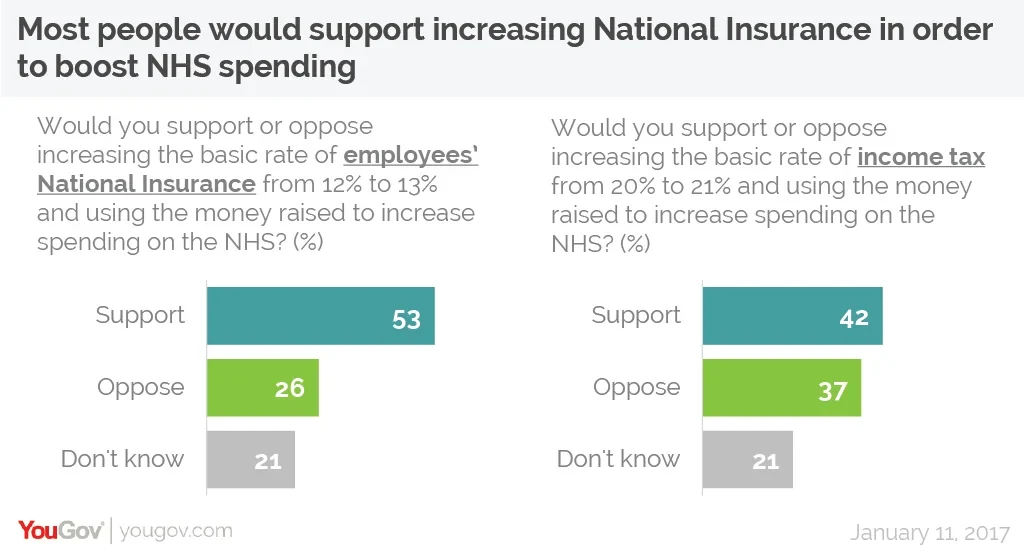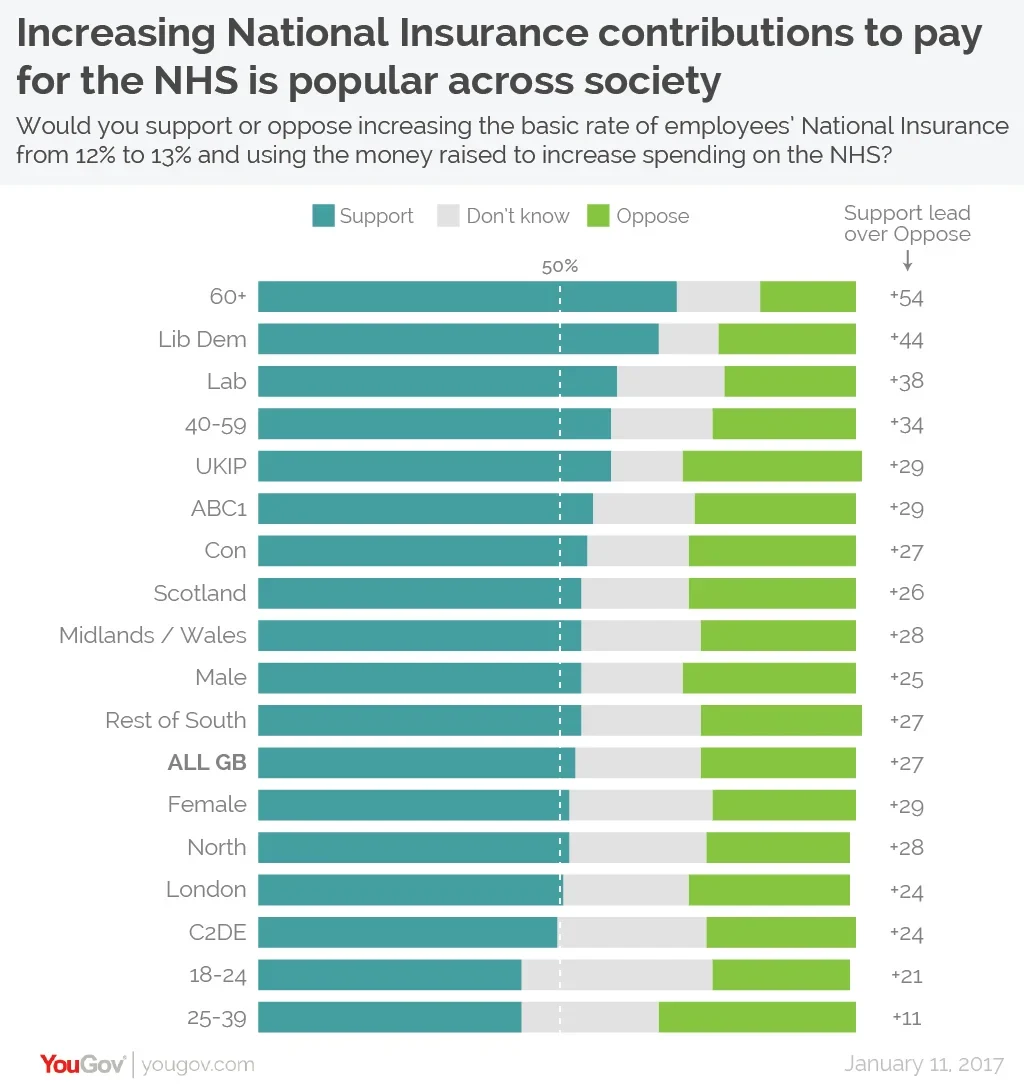Twice as many support raising National Insurance to boost NHS funding than oppose it
The NHS has led the news this week. The Royal College of Nursing has branded conditions in the NHS the worst they have ever experienced, whilst the Royal College of Physicians says the health service is having to deal with its worst ever winter crisis. In Parliament, Jeremy Corbyn slammed Theresa May for being "in denial" about the pressures the NHS is facing.
In a select committee hearing yesterday, Simon Stevens, the chief executive of NHS England, challenged the Prime Minister's view of health funding. NHS England estimated last year that its funding gap could be as high as £30 billion by 2020/21.
With extra money for the NHS needing to be found somewhere, a fortnight ago Liberal Democrat leader Tim Farron suggested that the public may be ready to pay an extra penny on income tax in order to improve health services.
New YouGov research suggests that the public are increasingly open to this idea, and are now more likely to support such a move than oppose it.
The proportion of people who would support boosting health spending by an extra penny on the basic rate of income tax has increased by eight points since April 2014, and now stands at 42%. By contrast, the level of opposition to such a move has fallen from 51% to 37% over the same time period, meaning the public is now more likely to support a tax increase to fund the health service than oppose it.

That being said, such a move is not backed by all social groups. Whilst people to the left of centre, women, middle class and older people tend to support the policy, younger people and UKIP voters tend to oppose it. Conservative voters, men and the working class are quite evenly split on the idea.
The public would prefer the policy if it applied to National Insurance
Politically speaking, the better option could be to boost NHS spending by adding an extra penny on the pound to people’s National Insurance contributions. More than half of people (53%) would support such a policy, up five points since April 2014. Only about a quarter (26%) would actively oppose the move, having fallen from 37% in 2014.
The research shows that this way of increasing NHS funding enjoys a double digit leads across all sections of society.

However, while more popular, increasing National Insurance instead of income tax could end up hitting poorer people harder. This is because even the lowest earners pay National Insurance, but the £11,000 tax-free allowance would mean increasing income tax would affect them less. Additionally, an income tax increase would see better-off pensiomers contributing as well, which they would not do under a National Insurance increase.
Whichever policy change the public favour, what is clear is that the populace does not think the current state of affairs is sustainable. Support for maintaining current levels of NHS spending – leaving income tax and National Insurance levels as they are – has dropped 13 points in the last three years to just 31%.
Opposition to keeping the status quo stands six points higher at 37%, although nearly a third of people (32%) say they don’t know whether they would support or oppose NHS spending levels continuing as they are.
With the Liberal Democrats still struggling somewhat in the polls, Tim Farron will doubtless be pleased to see that he has hit on a policy that is popular with the public. Now he will just have to do his best to see his party get the credit for it.
Photo: PA











